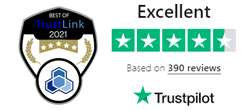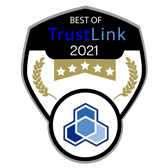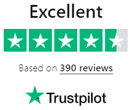Credit card debt is rising in many countries, with millions of people struggling to keep up with minimum payments and growing balances. The consequences of credit card debt can be severe, affecting not only your personal finances but your mental health as well. Fortunately, there are ways to get out of credit card debt, and one of the best options is debt consolidation.
This article will explore the ins and outs of credit card debt consolidation so you can make an informed decision and take control of your financial situation.
Understanding Credit Card Debt
Credit card debt is the amount of money you owe your credit card issuer. This type of debt accumulates when credit card users fail to pay their monthly credit card statements in full, resulting in an interest charge. Credit card debt can quickly spiral out of control, with interest rates quickly compounding and debts snowballing to unmanageable levels.
The effects of credit card debts can have a devastating impact on personal finance and mental health. High debts can often lead to anxiety, depression, and high levels of stress. Unmanageable debts can also lead to a decreased credit score, difficulty in obtaining new lines of credit, and poor credit card offers in the future.
In various demographics, the average credit card debt can significantly vary. For example, the average credit card debt for someone under the age of 35 is $5,808; however, for ages 45-54, it’s $9,096. Everyone’s financial situation can be different, but credit card debt is an issue that affects millions of people today.
The Pitfalls of Minimum Payments
Credit card users must pay a minimum balance on their credit card each month. This payment is the least amount that the issuer requires, but it’s also the most expensive way to pay off credit card debt. Minimum payments are designed to keep users from defaulting on their debt; however, it’s a trap that keeps cardholders in debt for extended periods.
The long-term cost of making minimum payments will see cardholders paying years of interest while the principal balance barely decreases. For example, if you owe $5,000 with a 20% interest rate on a credit card and make only the minimum payment, it’d take you 194 months to pay off the balance. The interest alone would accrue to $8,759, resulting in a total repayment of $13,759.
The Power of Debt Consolidation
Debt consolidation is the process of combining several debts into one, intending to reduce monthly payments and/or overall interest costs. There are several ways to consolidate credit card debt, including balance transfer cards, personal loans, and home equity loans.
Debt consolidation can help simplify the payment process and make it easier for you to keep track of payments. With a single payment to make each month, there is less chance of missing payments or incurring late payment fees. Consolidating your debt also gives you the opportunity to negotiate lower interest rates with creditors, saving you money over time.
Steps to Successful Debt Consolidation
To successfully consolidate your credit card debt, you should begin by:
- Evaluating your debts and overall financial situation
- Next, research the various options available to consolidate credit card debt, such as a balance transfer or a personal loan.
- Finally, create a payment plan and stick to it.
Negotiating with creditors can be a powerful tool to reduce interest rates. Setting a realistic timeframe for your repayment plan is important, as is keeping track of your credit score to monitor any potential changes.
Alternatives to Debt Consolidation
While debt consolidation is an excellent option for many people, it may not be the right solution for everyone. Other popular debt reduction strategies are the debt snowball and avalanche methods. In the debt snowball method, individuals focus on paying off their smallest debt first while making minimum payments on all other debts.
In contrast, the debt avalanche method targets higher interest rate debts first while continuing to make the minimum payment on lower interest debts.
FAQs about Credit Card Debt Consolidation
1. What is debt consolidation?
Debt consolidation involves taking out a new loan to pay off multiple high-interest debts. By combining these debts into one loan, borrowers can simplify their payments, negotiate lower interest rates, and make the repayment process much more manageable.
2. Is debt consolidation good or bad for my credit score?
While debt consolidation can help you better manage your payments and repay your debt, it can also have a negative impact on your credit score. Applying for a new loan will cause a hard inquiry on your credit report, which can temporarily decrease your score.
However, if you make timely payments on your new loan, you can quickly recover your score and even improve it in the long run.
3. Can I consolidate my debts on my own?
Yes, you can. Consolidating your debt independently is possible but involves significant research, negotiation, and planning. You must evaluate your financial situation and consider all the risks, including interest rates, fees, and penalties. However, if you have banking and loan experience, doing it on your own is possible.
4. Who should consider debt consolidation?
Debt consolidation may be suitable for anyone with multiple high-interest debts that they are struggling to pay off. It can make the repayment process simpler and more manageable, especially if you are juggling several monthly payments or have trouble keeping up with due dates.
5. What are the drawbacks of debt consolidation?
Despite the benefits, debt consolidation has some drawbacks. For one, you need to have a good credit score to qualify for a loan with a reasonable interest rate. If your credit score is low, you may still qualify for a consolidation loan, but the interest rates may be higher than other loans.
In addition, consolidation loans typically require collateral or a co-signer, which can be a risk if you aren’t able to repay the loan.
Conclusion
Understanding the “ins and outs” of credit card debt consolidation can help eliminate the stressful impact of debt on personal finance and mental health. While several options are available for debt consolidation, it’s important to choose the right option that suits your situation.
Reducing interest rates, simplifying payments, and negotiating with creditors are essential steps towards debt-free living. A successful and sustainable debt consolidation plan is just a few steps away, allowing you to take control of your financial future.




